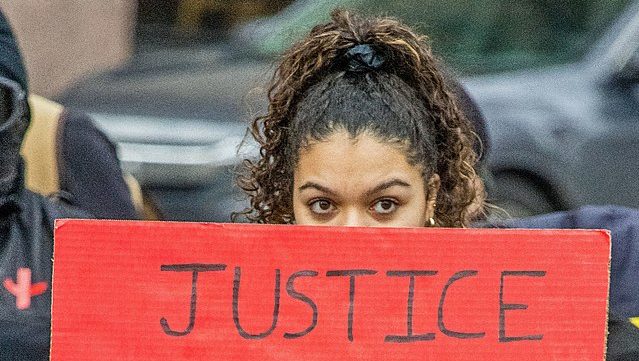Exploring Tyre Nichols’ death and how racism shows up in police work
The death of Tyre Nichols at the hands of five Black officers raises questions about the role of police work.

Protests for Tyre Nichols at the Ohio State House in Columbus, Ohio on Jan. 29, 2023.
Recently released body camera footage revealed Tyre Nichols, a Black man, being restrained and beaten by Black male police officers on January 7th in Memphis. The 29-year-old father of a four-year-old son, died in a hospital three days later.
Police officers say they originally pulled Nichols over for driving erratically. The Memphis police chief could not substantiate that claim.
After the event, the Memphis police chief took swift action. The officers involved have all been fired and are being charged with several crimes. The Department of Justice is also getting involved and has launched an investigation into what happened.
All the police officers on the scene were part of what Memphis police called a “SCORPION” unit — a group of cops that target high-crime areas. That unit has since been disbanded.
“Racism and white privilege is at the core of our system of policing.” — John Sloan III, Black Lives Matter Detroit
Listen: How racism shows up in police work.
Guests
John Sloan III is a co-lead organizer with Black Lives Matter Detroit. He is also director and administrator of operations for the Detroit Safety Team, which works to re-center safety within communities and reduce the need for police interaction.
Sloan says the fact that it was Black police officers who beat Tyre Nichols is an example of internalized inferiority and white supremacy manifesting in police work.
“Racism and white privilege is at the core of our system of policing,” says Sloan.
Greg Bowens is a political and communications consultant locally in Detroit. He is also a co-founder and president of the Grosse Pointes-Harper Woods NAACP Branch.
Bowens says anti-Black racism pervades all parts of society.
“It’s more than just about how you interact with police,” says Bowen, “but it’s about how you interact in the society in which you live.”
Trusted, accurate, up-to-date.
WDET strives to make our journalism accessible to everyone. As a public media institution, we maintain our journalistic integrity through independent support from readers like you. If you value WDET as your source of news, music and conversation, please make a gift today.
